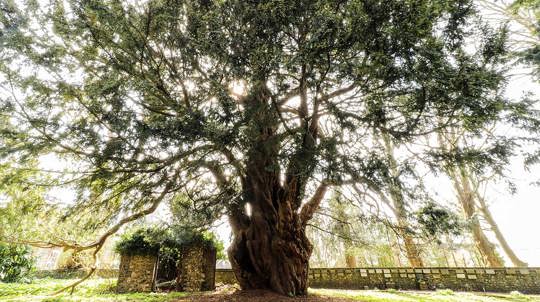If you'd like to have a chat with one of our team about how your support can make a big difference, please get in touch via philanthropy@woodlandtrust.org.uk or call 0330 333 3300
Tax efficient giving
Helping your donations go further.

Various tax incentives are available to individuals to encourage giving to charity. These incentives provide opportunities for UK tax payers to structure charitable giving in a way which both saves tax and maximises the value of donations for recipient charities.
This guide offers general information on some of the options open to you. We then recommend that you seek independent financial advice tailored to your circumstances before committing to a donation.
Please note that tax rates and regulations do change and the information below is correct as of December 2025.
Gift Aid
The Gift Aid scheme allows charities to claim basic rate tax of 20% on your donation. For example, if you donated £100 to the Woodland Trust and we were able to claim Gift Aid, the value of your donation would rise to £125.
Tax relief is also available to UK donors paying higher rates of income tax (40% or 45% for tax year 2025/26). This enables you to reclaim the difference between the basic rate and the highest rate of tax on the gross value of your gift via your self-assessment tax return. If you do not fill in a self-assessment tax return, you can obtain your tax relief by calling HMRC on 0300 200 3300 and having your tax code amended. You can then either keep any money reclaimed or donate it back to the charity.
Find out more about Gift Aid.
Donating directly out of your salary
Payroll Giving is a tax efficient donation scheme offered by some employers. It allows charitable donations to be deducted from your monthly salary after the deduction of National Insurance but before the deduction of income tax. These donations are then paid over to a UK charity of your choosing.
When you donate through Payroll Giving, you receive tax relief on your donation immediately. This means that the actual cost to you depends upon the rate at which you are taxed. To donate £1, a basic rate taxpayer pays 80p.
The same donation would cost higher rate taxpayers 60p (or 55p for additional rate taxpayers). The tax you would have paid on your donation is also given to the charity. Note that these amounts will differ in Scotland.
Donating shares
Ordinarily, where there is a gain on a disposal of shares above the annual exemption (£3,000 in the tax year 2025/26), capital gains tax will be payable on the gain even if they are given away to someone other than a spouse. When donating shares to charity, however, no capital gains tax is payable by you, provided there is an exchange of letters between yourself and the charity stating that the shares are to be donated to the charity, and that the charity is happy to accept them in order for the relief to be given. Proper records must be kept, such as:
- legal documents showing the transfer of the shares to charity
- documents where the charity asks you to sell the shares on their behalf.
In addition to the capital gains tax exemption, there is also income tax relief available on the value of the shares.
Donating property
The sale of your main residence is free from capital gains tax. However, second homes are taxable on the gain (the difference between the sale proceeds and the cost of the property when it was acquired). Capital gains on second homes is charged for higher rate taxpayers at 24%.
The rate is less straightforward for basic rate taxpayers. Depending upon circumstances, the rate of capital gains tax will be either 18% or 24%, depending on a combination of your taxable income and your total taxable gains.
By donating your second home to charity, no capital gains tax arises. This too depends upon the exchange of letters offering the gift to charity and the charity accepting the gift.
Inheritance tax
Leaving a gift in your will won't cost a penny now but can make a real difference to the future of woods, trees, nature and people. It can even reduce the level of inheritance tax.
Inheritance tax is a 40% tax applied on your estate after death. The first £325,000 of your estate is tax free and gifts to a registered charity like the Woodland Trust are also exempt transfers. This means that inheritance tax is not payable on anything you leave to charity, and it won’t count towards the total taxable value of your estate.
You can also reduce the inheritance tax rate on the rest of your estate from 40% to 36% if you leave at least 10% of your net estate to charity.
Property
If a property left in a will is a main residence and is bequeathed to a direct descendant, an additional nil rate band of £175,000 applies (accurate as of tax year 2025/26).
Property given to charity does not count towards the total taxable value of the estate.
Other conditions apply
If your estate is worth over £2 million, the residence nil-rate band will be tapered. For every £2 your estate is over £2 million, the residence nil-rate band will decrease by £1. That means that at £2,350,000 your residence nil-rate band will be zero.




